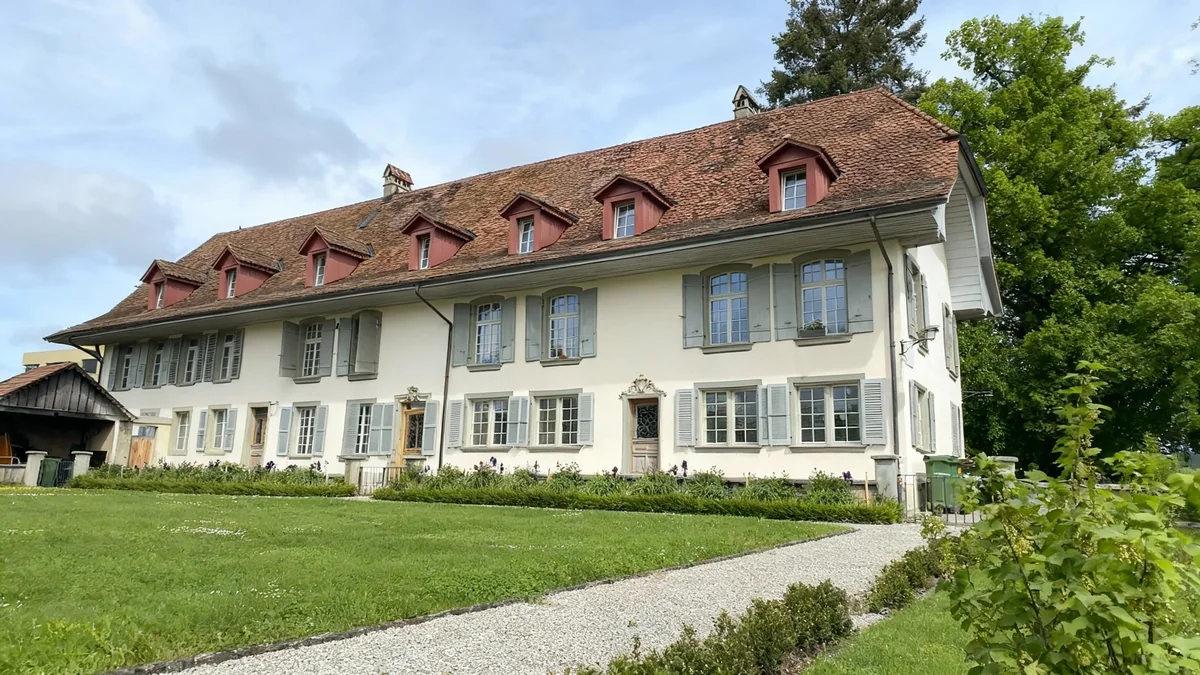The effectiveness of early French language instruction in Bernese schools is currently a major topic of discussion among educators, politicians, and parents. Despite starting French lessons in the third grade, many students do not achieve basic proficiency by the end of their schooling, leading to calls for reform and reevaluation of current teaching methods.
Key Takeaways
- Early French education in Bern begins in the 3rd grade.
- Evaluation shows many students do not meet basic proficiency levels by graduation.
- Political debate includes proposals to delay French lessons until the 5th grade.
- Experts suggest reforming teaching methods to include more immersive experiences.
- Students express mixed feelings, with some enjoying the early start and others finding it challenging.
Challenges in Achieving Language Proficiency
Recent evaluations highlight significant gaps in French language acquisition among students in the canton of Bern. Data indicates that less than 60 percent of tested adolescents meet basic listening comprehension requirements by the end of their schooling. Reading comprehension results are even lower, with only about 50 percent achieving the fundamental standards.
These figures stand in stark contrast to English language proficiency. For English, approximately 80 percent of students meet basic reading comprehension, and 90 percent achieve basic listening comprehension. This disparity fuels the ongoing debate about the efficacy of current French teaching approaches.
Key Statistics
- 67% of Bernese students meet basic French listening comprehension.
- 54% of Bernese students meet basic French reading comprehension.
- In comparison, 80% meet basic English reading comprehension.
- 90% meet basic English listening comprehension.
Political Pressure and Proposed Reforms
The discussion around early French instruction, often called 'Frühfranzösisch,' has gained political momentum. Several cantons, including Zurich, St. Gallen, and Appenzell Ausserrhoden, are considering abolishing early French classes altogether. The federal government, however, views these moves as a threat to national cohesion and harmonized education across Switzerland, vowing to intervene legally against cantons that deviate from the established language compromise.
In Bern, a proposal from the Green Liberal Party (GLP) suggests delaying French instruction by two years, moving it from the 3rd to the 5th grade. Michael Ritter, a GLP Grand Councillor and gymnasium teacher, argues that early French has not delivered on its promises. He believes the current system has not improved language levels and contributes to overcrowded school timetables. Ritter advocates for strengthening French education from the 5th grade, potentially through bilingual classes.
"Early French does not deliver what it promises," said GLP Grand Councillor Michael Ritter. "The level has not improved; on the contrary. And early French is one reason for overloaded timetables."
Education Director Christine Häsler (Greens) defends the current system. She emphasizes that early French is not solely about language acquisition. It also aims to foster early contact and access to French-speaking Switzerland. "Multilingualism is very important to me; I stand behind early French," Häsler stated.
Classroom Experience and Student Perspectives
Engaging Young Learners
In a 3rd-grade class in Münsingen, teacher Tonia Jäggi uses songs and interactive games to teach French. Children sing words like "règle" while holding up a ruler, or "trousse" as they raise their pencil cases. This playful approach helps young students learn vocabulary without traditional dictionaries or grammar exercises.
Jäggi notes that children at this age tend to speak with fewer inhibitions. "At the moment, they all enjoy it," she commented. Students like Finn (9), Maja (9), and Nina (8) describe French as "cool." Maja wants to speak with people in French-speaking Switzerland, where her godmother has a camper. Nina plans to use French words during her next holiday in Corsica.
A Look Back: Early Implementation
The canton of Bern introduced French instruction in the 3rd grade in the summer of 2011. Teachers like Tonia Jäggi recall the initial challenges, which included adapting to new teaching materials and undergoing further training and language immersion programs to enhance their own French skills.
The original textbook, "Mille feuilles," faced criticism for lacking structure, grammar, and relevant vocabulary for children. An updated version has since been released, which Jäggi finds significantly improved, with more practical and relatable vocabulary.
Challenges for Older Students
However, the enthusiasm seen in younger grades often diminishes by secondary school. Nadine Schindler, a French teacher in Niederwangen, observes that her secondary students struggle with retention. "It's frustrating how little sticks from French lessons," she remarked. Students often cram for tests and then forget the material quickly.
Schindler attributes this to the lack of daily application, unlike English, which students encounter more frequently outside the classroom. She describes students learning French "like mathematical formulas." The curriculum also presents a challenge, with a large amount of material to cover in a limited number of lessons per week.
In 3rd and 4th grade, students have three French lessons per week. This drops to two lessons in 5th and 6th grade. "That's not much," Jäggi acknowledges. She tries to integrate French into other subjects, greeting students in French or explaining sports exercises in the language, to spark curiosity.
Expert Opinions and Future Directions
Daniel Elmiger, a linguist at the University of Geneva, contributed to the evaluation's groundwork. He states that the results are "clearly unsatisfactory," especially since basic competencies represent the minimum all students should achieve. Elmiger points to varying language competencies among teachers as one potential reason for the poor outcomes. He suggests that some cantons place too little emphasis on foreign languages in teacher training.
The Bern University of Teacher Education, however, maintains high linguistic requirements for its French teachers, demanding C1 level for primary school and C2 for secondary school. C2 proficiency includes fluent speaking and academic writing.
Elmiger does not advocate for abolishing early French. Instead, he suggests a reform that focuses on making the language feel alive. This includes greater interaction with people from other linguistic regions, using authentic materials like music, and incorporating social media or artificial intelligence into lessons.
The Early Start Debate
Regarding whether an early start makes a difference, Elmiger notes that studies indicate younger children learn pronunciation and comprehension faster. However, the structural aspects of a language are acquired more rapidly at the secondary level, when students have greater cognitive abilities. He also points out that there is limited conclusive research for Switzerland due to frequent school reforms and new teaching materials.
Students also hold mixed views. Yara (15) expresses a fondness for French but finds it complicated and requiring patience. Aschley (15), who is bilingual, finds the many exceptions in French grammar fascinating but feels three lessons per week are insufficient for speaking practice. Eleyna (15) believes learning only English, a world language, would suffice.
Carla (15) and Eleyna think it would be better to start French in the 5th grade with more weekly lessons. "Not much of early French is left with me," Carla shared. Nadine Schindler, the secondary teacher, supports an early start, believing it helps children develop "natural language patterns" through regular repetition. However, she admits that even basic elements like numbers and telling time often remain elusive for many students.
The ongoing dialogue emphasizes the need for effective strategies to ensure that early exposure translates into lasting language proficiency and a genuine connection with Switzerland's diverse linguistic landscape.




